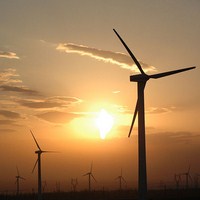During Secretary of State John Kerry’s trip to China in April, the U.S. and China issued a joint statement on climate change and agreed to undertake actions that would set an example for the rest of the world. In June, Presidents Barack Obama and Xi Jinping agreed to address the production and use of hydrofluorocarbons, a type of superwarming, short-lived greenhouse gas. While the two countries have plenty of issues to deal with on the bilateral agenda, climate change can be one of the least contentious, and further announcements are expected in the future.
Announcements are good, but action is better, and both the U.S. and China will need to step up their actions individually, bilaterally and multilaterally if the United Nation’s Framework Convention on Climate Change (FCCC) is to remain relevant.
The pressing issue is to keep global temperatures from rising by more than 2 degrees Celsius, the target generally agreed upon in international negotiations as required to protect human development. However, it is increasingly doubtful whether this objective is even possible. In 2012, the International Energy Agency revised its projections and said that there was a 40 percent chance that the world could experience a rise in temperature of more than 4 degrees C by 2100. The World Bank’s recent reports highlight the very real possibility of a world 4 degrees C warmer than it is today and the detrimental impacts that this would have on human and economic development. In addition, it is expected that the fifth assessment report by the International Panel on Climate Change (IPCC), due in September, will state with “virtual certainty”—99 percent—that global warming is caused by humans. The IPCC’s last report in 2007 settled on using the slightly less certain phrase “with very high confidence.”

